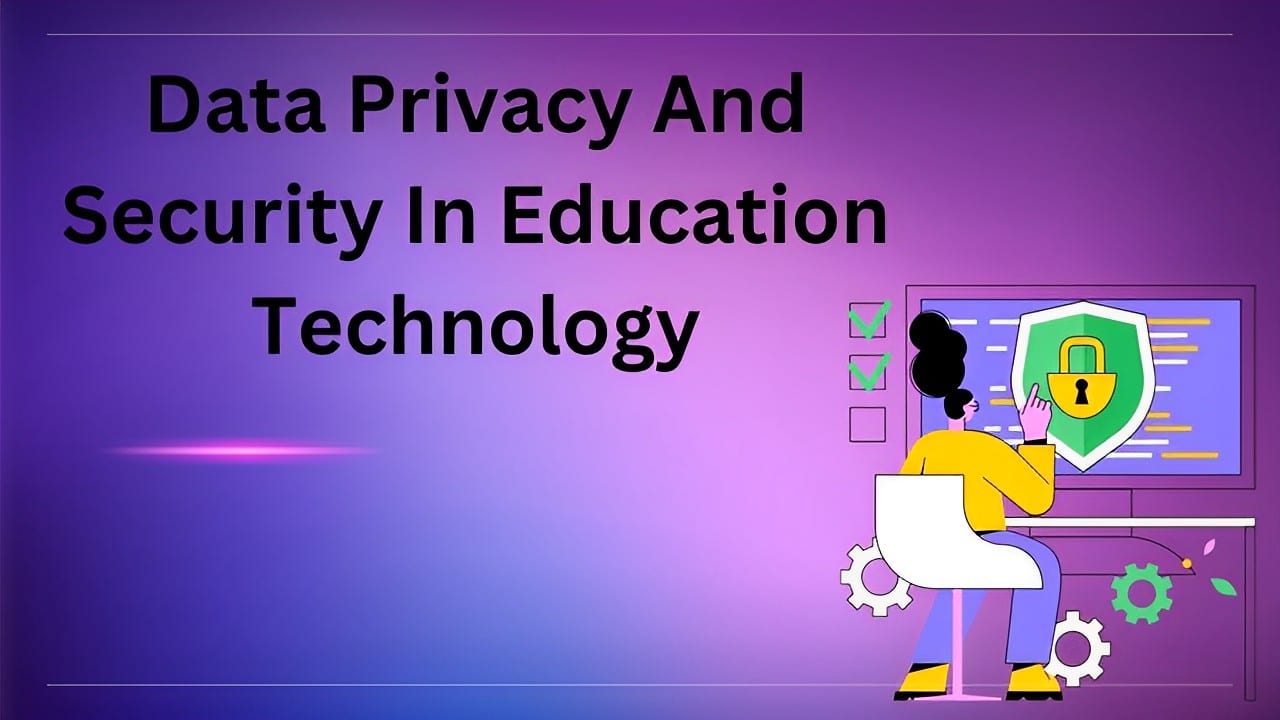In the digital age, technology has become an integral part of the education sector. Educational institutions and educators are increasingly relying on education technology (EdTech) to enhance teaching and learning experiences.
However, as data collection and utilization become more prevalent, concerns regarding data privacy and security in education technology arise. This article delves into the concept of data privacy and security in EdTech, discussing its importance, challenges, and best practices for safeguarding sensitive student information.
Understanding Data Privacy In Education Technology
Data privacy refers to the protection of personal information collected, stored, and processed by educational institutions and EdTech providers. In the context of education technology, data privacy encompasses safeguarding student data, including personally identifiable information (PII), academic records, attendance, behavior, and more. Students and their families have the right to expect that their personal information will be handled securely and only used for legitimate educational purposes.
The Importance Of Data Privacy In Education Technology
Data privacy is of paramount importance in the education sector for several reasons:
Protecting Student Confidentiality: Student data often contains sensitive information that should remain confidential. Breaches in data privacy can lead to unauthorized access, identity theft, or misuse of personal information. By prioritizing data privacy, educational institutions can maintain the trust and confidence of students, parents, and guardians.
Compliance with Regulations: Numerous regulations, such as the Family Educational Rights and Privacy Act (FERPA) in the United States and the General Data Protection Regulation (GDPR) in the European Union, mandate the protection of student data. Educational institutions and EdTech providers must adhere to these regulations to avoid legal consequences and ensure ethical data handling practices.
Preserving Academic Integrity: Data privacy is closely linked to academic integrity. Unprotected student data can be vulnerable to hacking, cheating, or academic dishonesty. By implementing robust data privacy measures, educational institutions can protect the integrity of assessments, grades, and educational records.
Challenges In Data Privacy And Security In Education Technology
Despite the significance of data privacy in EdTech, several challenges persist:
Third-Party Services: Educational institutions often rely on third-party EdTech providers for various services. However, this dependence raises concerns regarding how these providers handle student data. Educational institutions must carefully evaluate and select trustworthy vendors who prioritize data privacy and adhere to relevant regulations.
Data Breaches: Educational institutions store vast amounts of student data, making them attractive targets for hackers. Data breaches can result in unauthorized access to personal information, compromising the privacy and security of students. Educational institutions must implement robust cybersecurity measures to mitigate the risk of data breaches and ensure prompt incident response plans.
Lack of Awareness and Training: Many educators and staff members may not be fully aware of the intricacies of data privacy and security in EdTech. Insufficient training and awareness can lead to inadvertent mishandling of student data, making educational institutions more vulnerable to privacy breaches. Ongoing professional development and training programs are essential to educate stakeholders about data privacy best practices.
Best Practices For Data Privacy And Security In Education Technology
To ensure data privacy and security in EdTech, educational institutions and EdTech providers should consider implementing the following best practices:
Data Encryption: Employ robust encryption techniques to protect sensitive student data during transmission and storage. Data is kept unreadable and useless even if it is intercepted thanks to encryption.
Strong Authentication: Implement strong authentication measures, such as multi-factor authentication, to prevent unauthorized access to student data. This makes it possible to guarantee that only people with permission can access sensitive information.
Privacy Policies and Consent: Develop and communicate clear privacy policies that outline how student data is collected, stored, and used. Obtain informed consent from students or their parents/guardians, ensuring transparency and accountability in data handling practices.
Regular Data Audits: Conduct regular audits to assess data privacy and security measures. Identify any vulnerabilities or areas of improvement and take prompt action to rectify them.
Vendor Evaluation: Prioritize careful evaluation of EdTech vendors before engaging their services. Assess their data privacy policies, security measures, compliance with regulations, and track record in safeguarding student data.
Educate Stakeholders: Provide comprehensive training and awareness programs for educators, staff members, and students about data privacy and security. Promote responsible data handling practices to create a culture of privacy consciousness.
Conclusion
Data privacy and security in education technology are crucial aspects that must be prioritized by educational institutions and EdTech providers. By upholding data privacy principles, implementing robust security measures, and fostering a culture of privacy consciousness, stakeholders can ensure the protection of sensitive student information.
Safeguarding data privacy in EdTech not only preserves student confidentiality and academic integrity but also establishes trust among students, parents, and the wider educational community.
